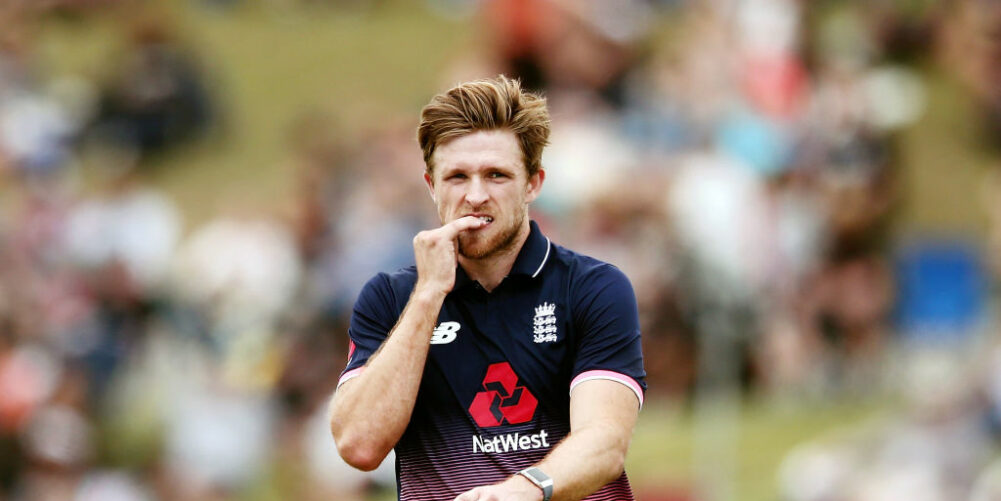By Derek Pringle
The recent revelation that the England and Wales Cricket Board has been pocketing fees from the Indian Premier League for English cricketers the latter has employed over the years has incensed counties even more than the idea of losing players to late call-ups to the tournament, such as those recently experienced by Yorkshire.
The fees, or ‘thank-yous’ as they are known, were set initially at 10 per cent of the players’ auction price but have risen to 20 per cent this season. With England-qualified players this year totalling about U$3.5 million (£2.48million) in the IPL, ECB are set to receive U$700,000 (£496,000). Over the years that has amounted to a sizeable sum in excess of U$3million (£2.12 million), money the cash-strapped counties affected believe should be going to them.
They have a point and one they will surely use to get another concession, that of a deadline after the IPL auction, past which franchises must not approach English players as replacements.
Recently Liam Plunkett, David Willey and Tom Curran have all been drafted following injuries in IPL teams, leaving their counties compromised at the start of the County Championship which gets underway today.
At present, the thought is for a deadline to be set four weeks before the IPL began. Yet, anything limiting opportunity for players is likely to be met with opposition by both them and the PCA (the players’ union), who will claim it obstructs, potentially, some cricketers from earning big sums of money in the IPL. After all, any measure blocking English players from going is likely to send franchises looking elsewhere for replacements, a situation that has the potential to disgruntle those who might otherwise be in the frame for a late call-up and the chance of a good earner.
The counties, who only found out about ECB’s ‘thank-yous’ from IPL ten days ago, just want a system that is fair to all. They would not stop players from entering the IPL auction but they would want an agreement that those not picked up first time around would not then be sought as replacements once the four-week deadline mentioned above had passed.
It doesn’t seem unreasonable to those who believe in loyalty and the binding power of contracts, yet in an age where players seem to get what they want, when they want it, they should expect some opposition.
They will also need the utmost co-operation of the IPL, something not always a given. What happens at the moment, with regard to replacements, is that franchises are meant to approach the ECB for permission to sign a player. The ECB, along with the county in question, then award a No Objection Certificate (NOC), which allows the cricketer chosen to play in the IPL. The NOC can be refused, something Nottinghamshire did early on in IPL’s history, when they forbade Alex Hales, Samit Patel and Richard Lumb from entering the auction, but that is now thought counter-productive.
The reality, though, is that franchises approach the player direct through their agent, dangle the substantial fee under his nose, and wait for the rest of the process to take its course, knowing that the NOC will be given if only to stop the player becoming disgruntled. After all, with players swapping counties as never before, any malcontents are likely to move on.
Part of the problem boils down to who owns the players and whose interests are best served by them playing in IPL? Most of England’s white ball cricketers, those likely to be sought by IPL franchises, are on incremental contracts, which require the county to pick up most of their salary, rather than on central contracts, which would see ECB pick up the entire tab.
It is ECB’s contention, now at least, that playing in IPL will benefit those chosen and by extension the England team they play for. Such advantages are not always seen by the county if those players, as in the case of Plunkett and Willey, are instrumental in their own campaigns. This country v county conflict is nothing new but this time it is reframed around that most emotive of issues – money.
It is a delicate situation. If counties wade in and start issuing demands about deadlines to the IPL they are likely to be given short shrift. What they need, ideally, is for ECB to use its heft with India’s Board of Control to do their bidding with the IPL. And yet, they are at odds with ECB over the fee payments for players in IPL going back years.
With anger roused in the shires and the ECB holding all the blunt instruments, it could take some sorting.
*This article originally featured in TCP on 13 April 2018. Subscribe: www.bit.ly/TCP-Sub













